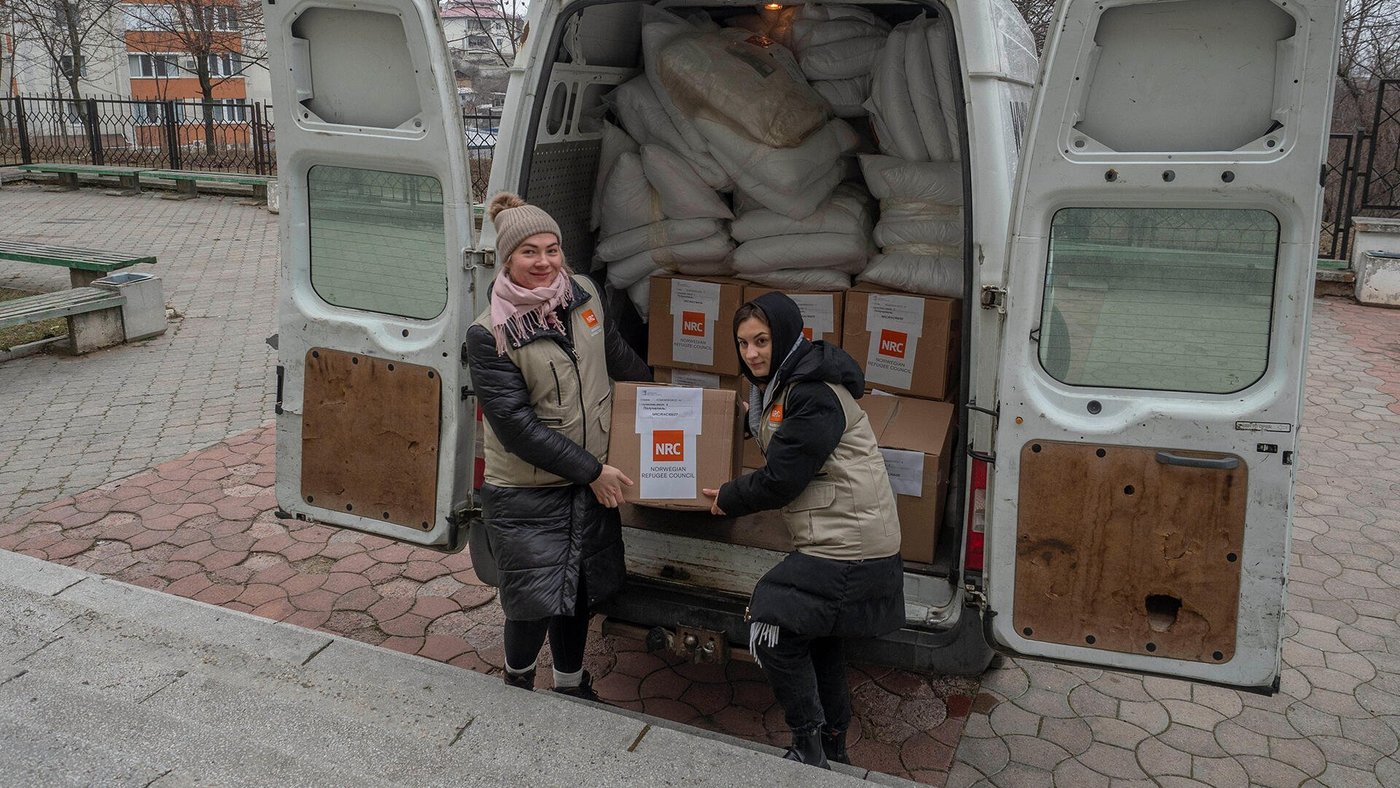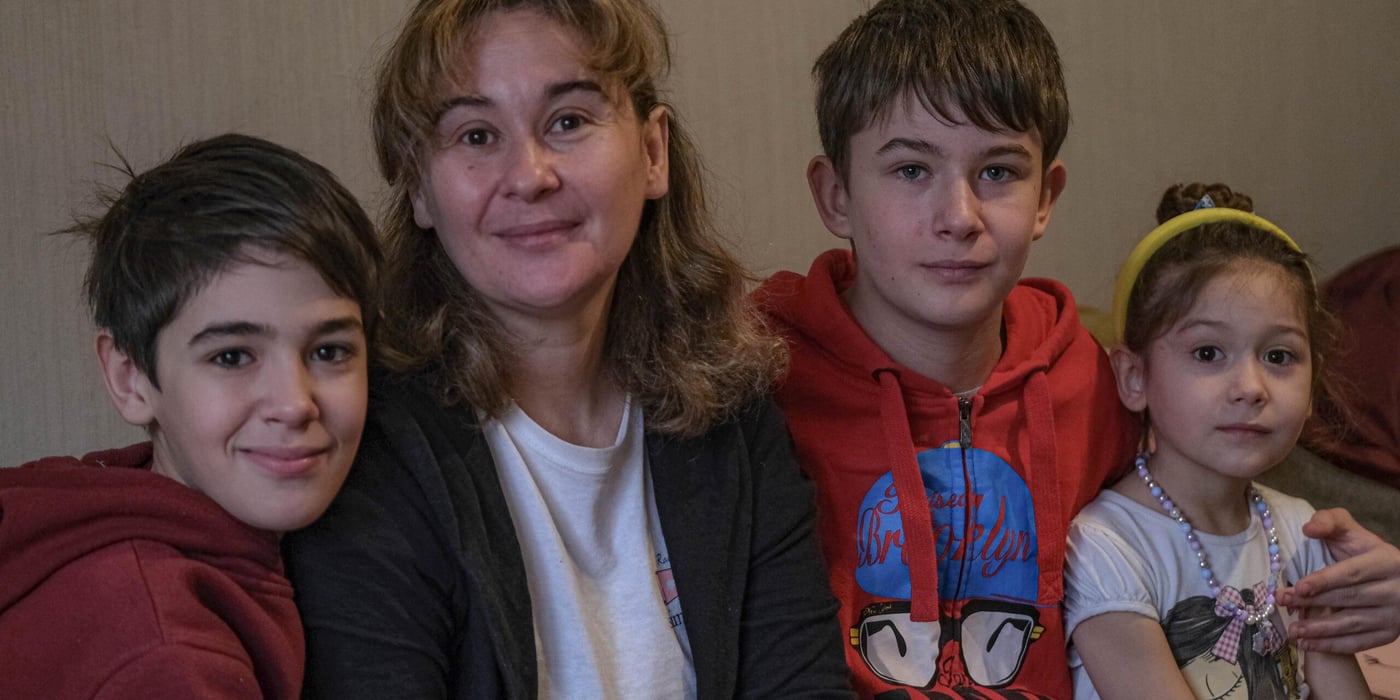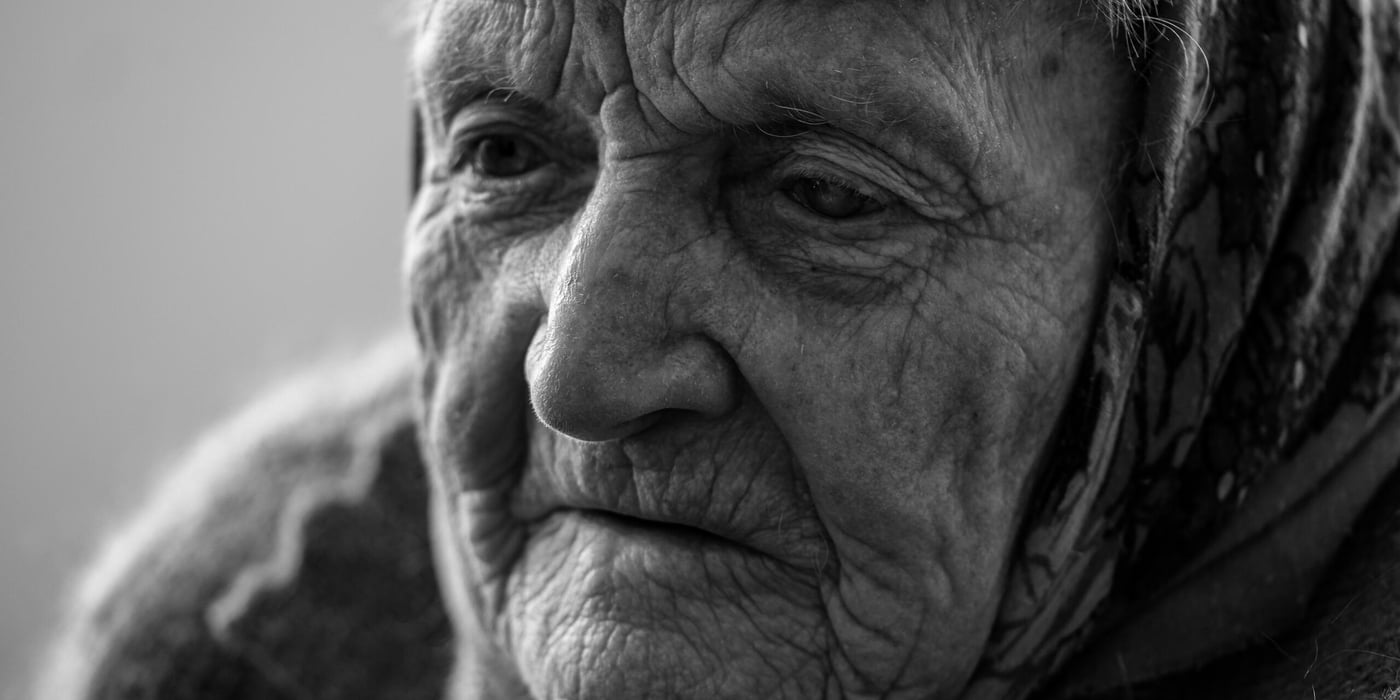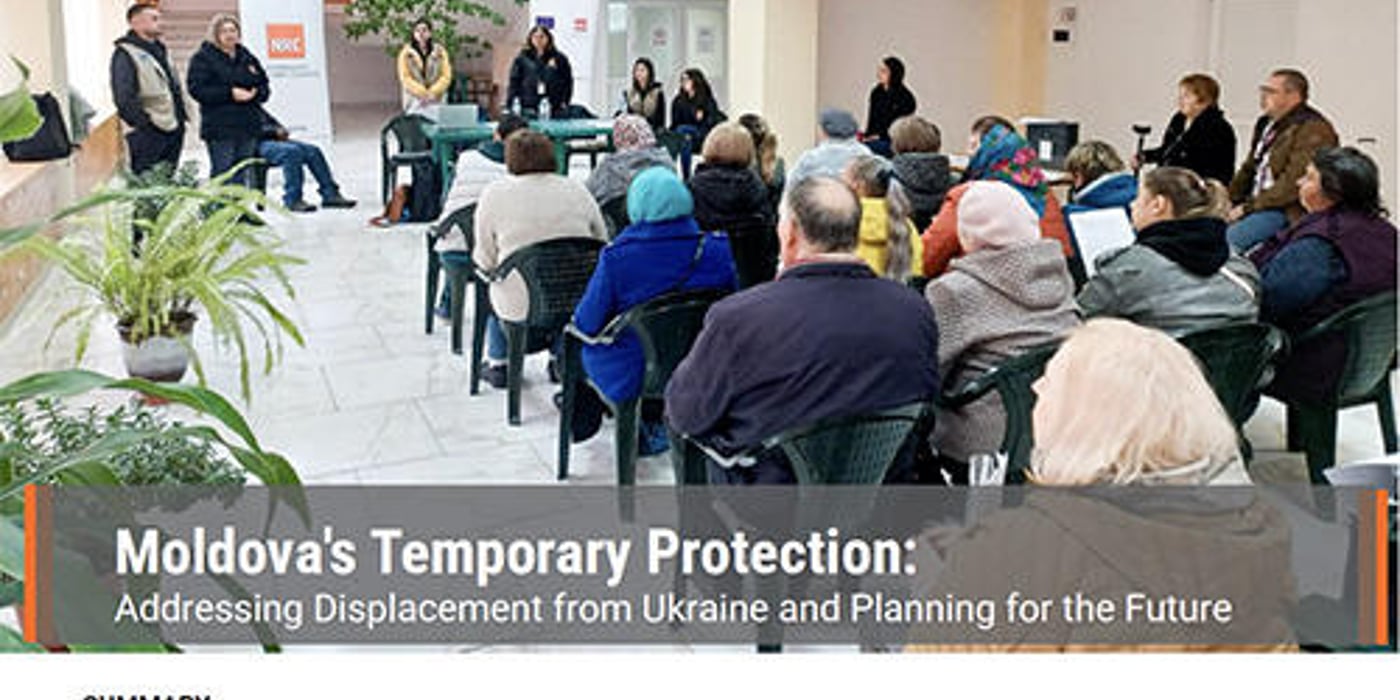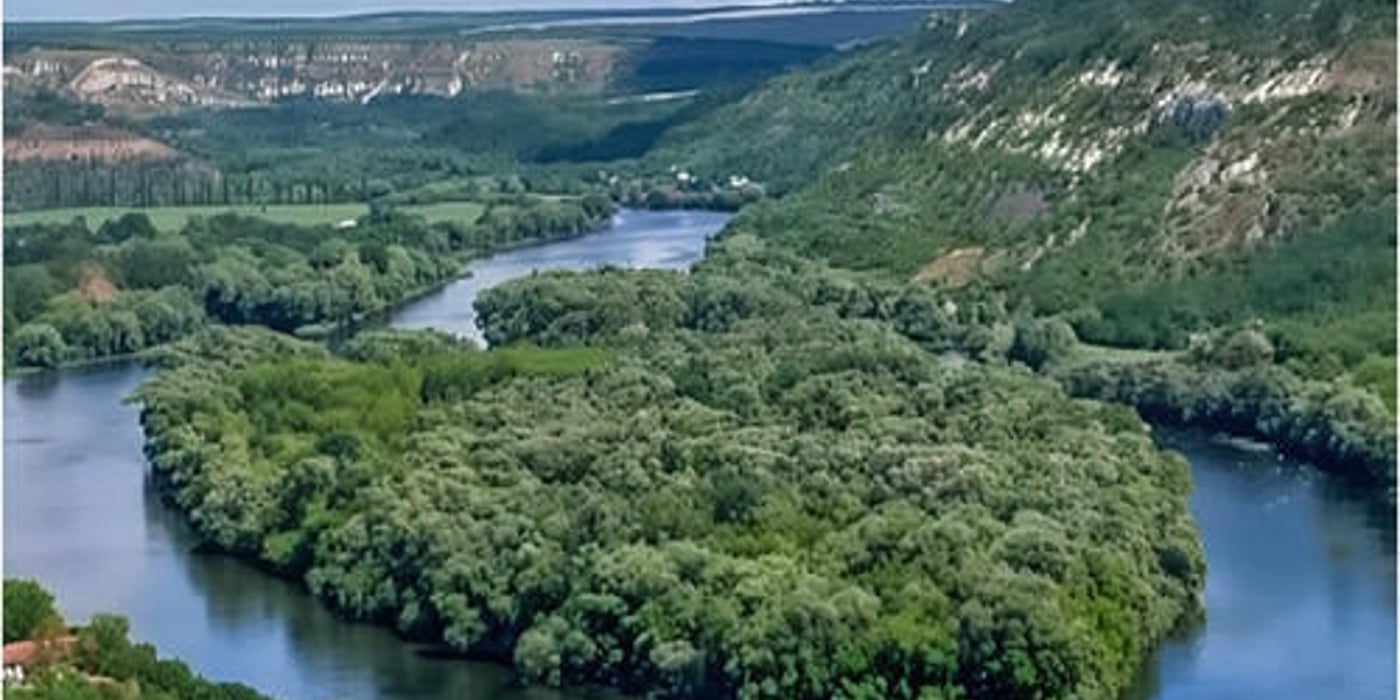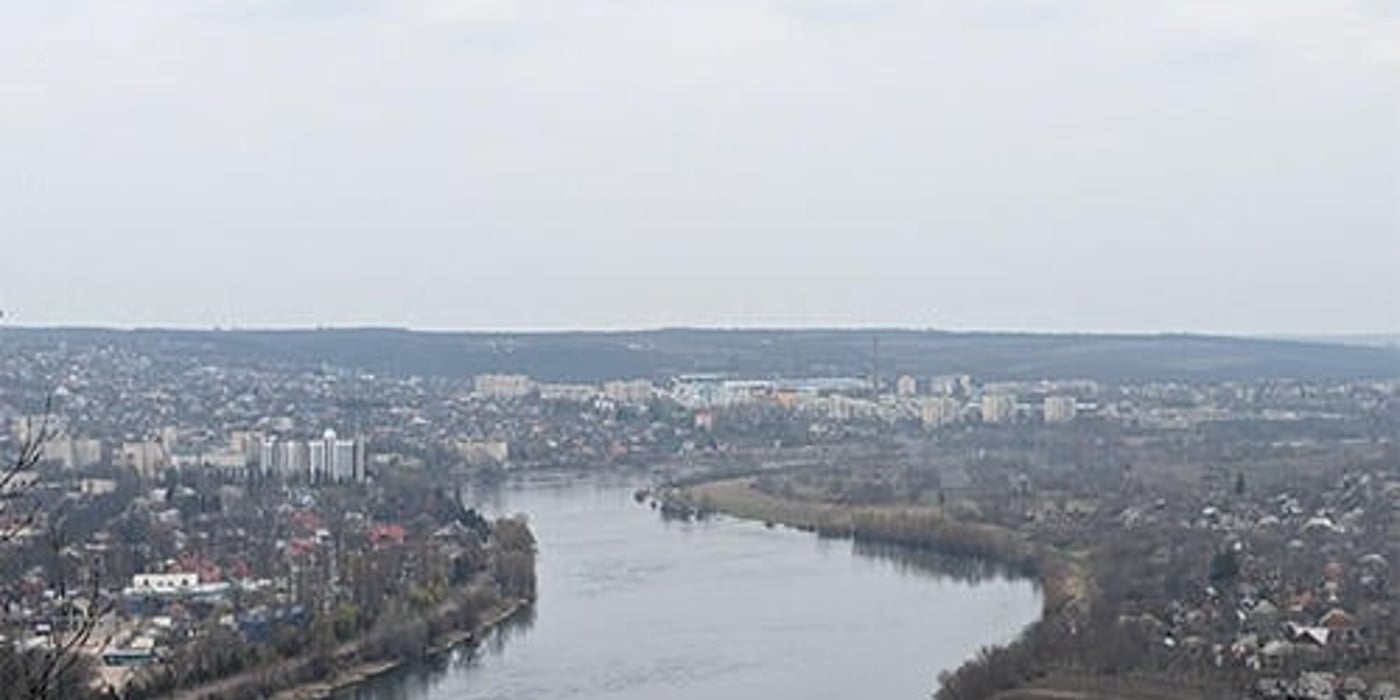With the help of local partners, the Norwegian Refugee Council (NRC) is providing shelter and legal support for these refugee families – as well helping them to stay safe, access education and recover from what they’ve been through.
What’s happening in Moldova?
When war broke out in Ukraine, thousands of families fled for safety and crossed the border into neighbouring Moldova. Soon, the population of this small country had grown by 4 per cent, and it was hosting one of the highest numbers of refugees per capita in Europe.
Most of these refugees are women, children or older people, and a third are under the age of 18. Nine out of 10 of them live in host communities, rather than camps or settlements, although some public buildings have been turned into temporary shelters to house them.
Since February 2022, refugees have been allowed to live and work in Moldova under an ongoing state of emergency. But many have only their savings and pensions to live on – and with inflation at an all-time high, they’re struggling to afford food, warm clothing and other basic essentials.
On top of these challenges, Moldova has been facing an energy crisis, which has further stretched its already limited resources. The ongoing disruptions in gas and electricity supplies have left both host communities and refugee families increasingly vulnerable, with many struggling to keep their homes warm and safe. This crisis undermines the stability and wellbeing of a country that has provided shelter to displaced people from Ukraine for nearly three years.
Our response
We’re working with our partners in the following areas:
- Shelter and settlements – helping families find somewhere safe to sleep and providing them with warm clothing, blankets and other cold weather essentials.
- Livelihoods and food security – running employment and entrepreneurial activities, such as business start-up and scale-up support, job placements and vocational training.
- Education – helping children integrate into local schools, recover from trauma and get the right support from their teachers.
- Protection from violence – engaging with local communities to ensure people can access the protection services they need.
- Information, counselling and legal assistance – helping people obtain the legal identity and employment documents that can help them access services.
Our operations
NRC office established: 2022
Areas of operation: Chișinău (country office), nationwide
Country Director: Neil Brighton
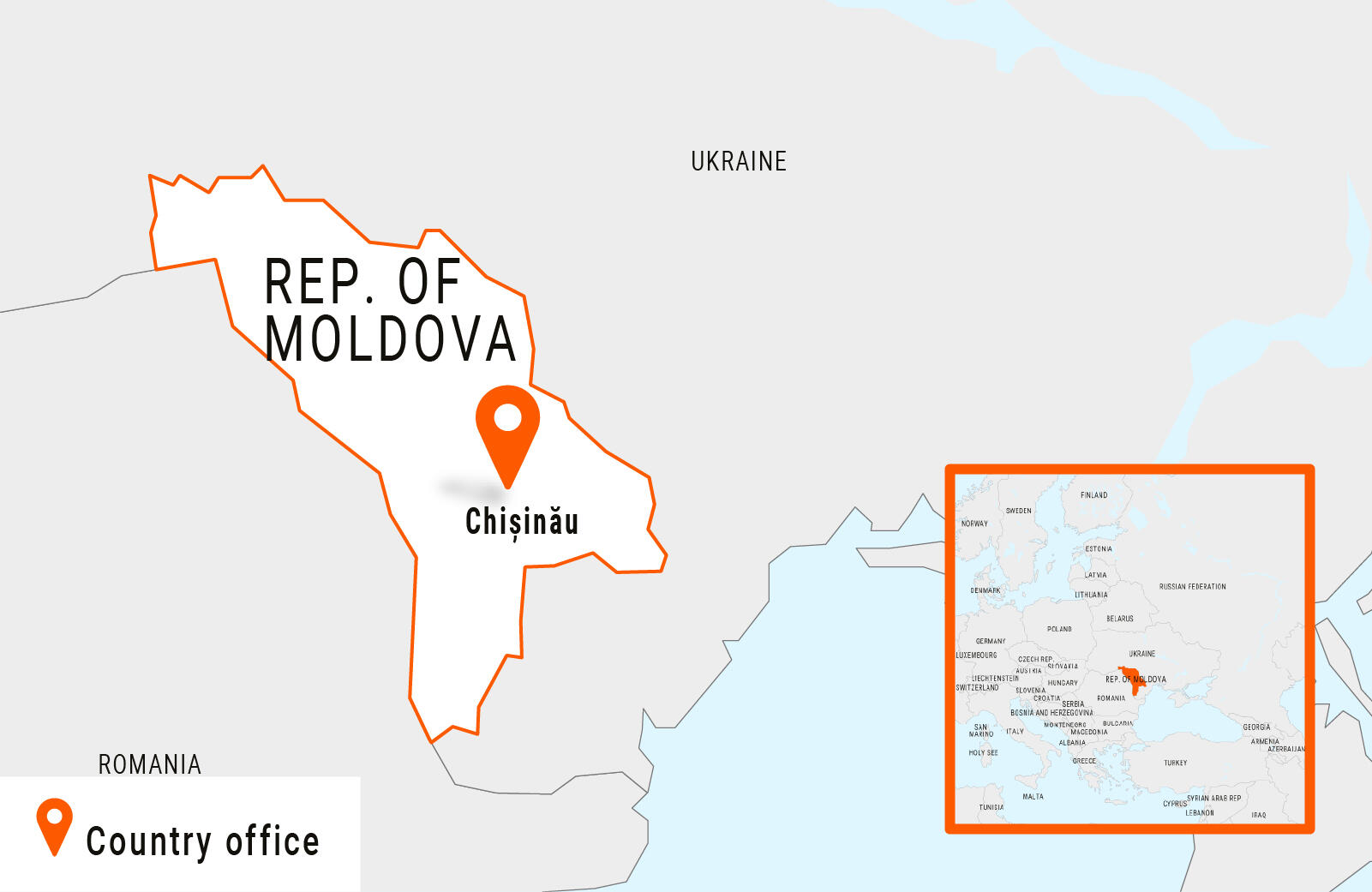
Our impact
In 2024, we assisted 33,898 people through our programmes in Moldova:
-
5,931Education
-
939Livelihoods and food security
-
9,056Shelter and settlements
-
5,698Protection from violence
-
13,289Information, counselling and legal assistance
-
3,567Water, sanitation and hygiene
Note: some people received more than one type of assistance.


